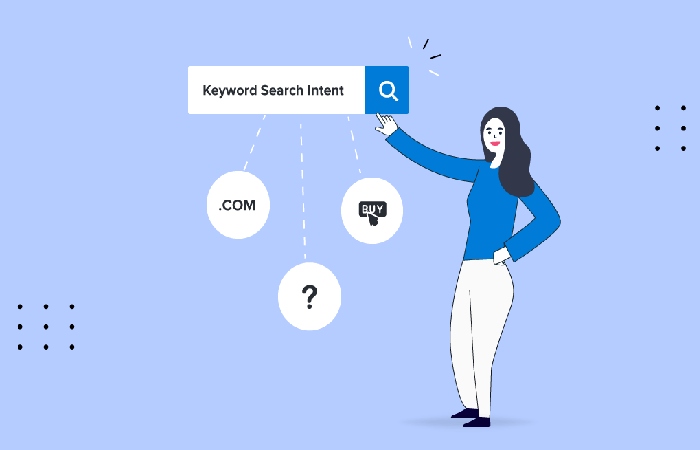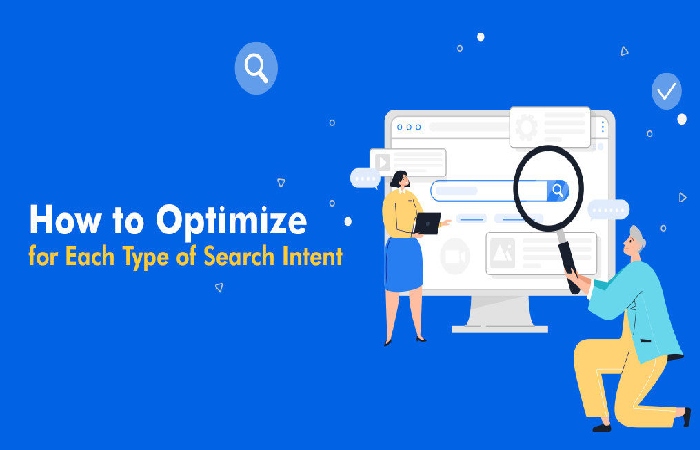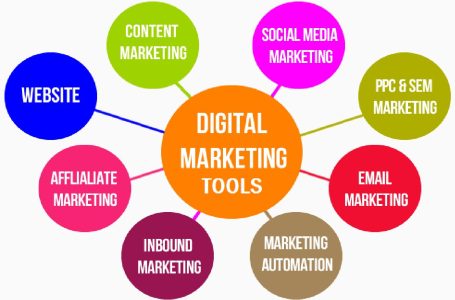Small business SEO is a set of techniques and good practices that help organizations stand out online. It is possible to achieve better positions in search engines and attract the attention of the ideal customer. In short: SEO helps increase conversions and sales.
The digital world is a vast space contested by companies, as is the real world. However, there is a struggle for space in a place of good visibility or for advertising opportunities on radio/television and other media in the traditional setting.
Online, the dispute involves several other media, where the main one is undoubtedly Google’s results page (and different SERPs). To stand out on this page, companies have two options:
- paid ads;
- SEO (Search Engine Optimization).
In this sense, understanding SEO principles for small businesses is essential. It is beneficial for managers to demonstrate their value to directors, develop the brand online without significant expenses, invest better resources, and generate better results.
If you want to be a part of the vast and rewarding SEO universe and absorb the top tips for success, carefully follow the topics below.

What Is SEO?
SEO is the name given to strategies and techniques that aim to optimize a website to ensure better positioning in search results. That is, it is a set of good practices that adjust the content to satisfy the rules of search engines and, therefore, allow you to find a website.
As current consumption has changed, SEO has become an absolute gold mine, with the internet playing a pivotal role in educating people before buying. The area has become decisive for many companies because it represents growing the business through digital endeavors.
After all, the dispute that used to be exclusive to offline marketing has reached the virtual world. The positions on the results pages are the object of competition, as the sites that appear first on the page are more likely to capture the user’s attention and the much-desired click.
Hubspot data proves it: 75% of people don’t even get past the first page of results. Other Zero Limit Web research shows that 67.6% of clicks typically go to the top 5 organic results of a SERP.
SEO is a set of actions that generate organic traffic, an alternative to paid channels, ads in sponsored links.
In this sense, the opposite reasoning should also be highlighted: these practices prevent the domain from being punished by search systems, according to their rules and definitions. It is a way to keep the company safe and accessible in the digital environment.
On Page and Off Page
When we talk about SEO, it is important to divide it into two categories to delve into the subject:

- SEO On;
- SEO Off-Page.
The On-Page refers to all the changes made within the site, such as the internal configuration related to each content. It includes meta tags, good titles, meta descriptions, URLs, images, heading tags, among others.
Meanwhile, the Off Page refers to the optimizations made outside the site, such as backlinks, brand mentions, direct searches, and others.
What Is Its Importance For Small Businesses?
It is widespread for SEO to be confused with strategies that work best only for large companies. Many professionals feed this concept since they believe that organic optimization is similar to the logic of sponsored links.
However, we already know that small companies have a smaller and more controlled budget than large corporations. For this reason, they cannot invest so much in means of payments and in advertisements, which leads to the loss of some spaces. On the other hand, this only reinforces the power and importance of SEO.
Search engine optimization practices help smaller businesses establish their domains as relevant on the web and without spending money on ads. By mapping keywords and using precise strategies, the right customers find the sites, putting them in the sales funnel.
Using these approaches increases organic traffic, raises brand awareness, educates the public, and prepares people for conversions.
Therefore, it is a configuration that generates results from the greater generation of leads and sales in the medium and long term. These benefits are solid and long-lasting, turning into revenue and keeping the company firm in the SERPs. Unlike, for example, the temporary visibility of an ad or campaign.
Company That Invests In SEO
A company that invests in SEO from a minor stage can develop the credibility and authority to achieve high performance in the digital world. Proper techniques allow smaller companies the opportunity to compete side by side.
In practice, this may mean a change of address, for example. Instead of competing for keywords that compete with large corporations, the SME can work with specific terms, which refer exactly to what its client is looking for.
This already positions the company in the ideal SERPs, where consumers are, and allows it to generate value for this audience.
In addition to this, it should be mentioned that organic results are more reliable for users since they are not seen as mere advertising.
Customers, therefore, find content that appears organically more valuable and less focused on simply selling for the sake of selling. In this way, companies that emphasize SEO techniques can rank well in the SERPs and still gain an advantage over sponsored links.
9 Tips On How To Do SEO For Small Businesses
Now, let’s dive into the topic with 9 practical SEO tips for small businesses.
1. Relevant Content
The first tip is not even a technique but refers to the value that quality content generates. Although SEO trends will always change, this one has remained relevant throughout the years.
We are, of course, thinking of SEO in an ingrained Content Marketing strategy, which is crucial for this strategy to work.
For search engines, content is significant, as algorithms try to show users exactly what is most relevant, clear, and deep to them. So, develop valuable, unique, and complete materials that meet demands, clarify doubts, and present practical solutions for your Buyer Persona.
It is essential to emphasize that orientation and education should be prioritized. Teach your audience more about the area, fight objections, and create instructions about their daily lives. Get organized to talk less about your brand and products directly and instead focus more on essential topics to people in an advisory tone.
He also experiments with formats, including exploring trends, such as interactive content. In this sense, it is worth studying the search intention very well to create each content.
It is also essential that the production of the content is organized and planned according to the most important principles and best practices. In this way, the writing, for example, must already be born obeying the SEO writing rules to optimize the results.
2. Keyword

Keyword research is an essential activity for any SEO strategy. It guides the production of content to satisfy the demands of the already existing public, mapping the terms used in the engines.
Based on specific tools for this purpose, management can raise important expressions and evaluate: how much is being disputed and how much they can generate in terms of access.
In this sense, it is worth highlighting the particularities and subcategories. We have the long-tail keyword, a longer and more specific expression, and the head-tail keyword, which refers to shorter, general terms.
Of course, specific terms are less competitive and can connect your brand directly with your audience. Therefore, it is interesting to have a job focused on them.
In some scenarios, when the customer is looking for a long tail, he is ready to purchase or hire a service. Also, when they prefer shorter and more open deadlines.
They want to learn more about a topic without looking for a solution.
However, good planning also considers the need to consider the head tails’ classification and balances the creation of materials for both types.
3. Page Optimization
Another tip is on-page settings, which prepare your site to obey search engine guidelines. In this sense, it is worth highlighting the work with the strategies that we have already mentioned:
set good headlines that summarize the page well, contain the keyword, and grab attention;
uses heading tags as a way to structure content and answer people’s questions;
- use images;
- set the URLs well;
- Among other.
4. Link Building
We can also mention Link Building, which takes care of the connections between pages. It is essential to establish a coordinated work to link pages related to each other, using relevant terms.
Thus, you generate value for the user, allowing them to navigate your site, find more answers, and point out an internal organization that deserves a good positioning to the search engine.

Also, posts must obey some rules regarding links. It is good practice, for example, to insert 3 links every 500 words of a text.
Think carefully about the order of these links, as the ones that appear first are the most relevant. For keywords important to the business, try to link to full, long, and detailed posts.
In the case of external links, the recommendation is always to connect to sites of greater authority and credibility in the market. The image below explains in more detail why.
5. Local SEO
One of the changes in the SEO world caused by the COVID-19 pandemic was the greater emphasis on local SEO. Local consumption has become more critical, as people tend to stay home longer and avoid moving.
Additionally, local SEO is associated with face-to-face visits: According to Google, 76% of people conducting local research visit the business within 24 hours.
So be sure to go for these strategies. Work with keywords optimized to highlight the geographic aspect (instead of ranking for “marketing courses,” focusing on “marketing courses in CDMX”) and develop content oriented to the needs of your community.
Another good approach is the business page set up in Google My Business, with features related to location, opening hours, a direct link to the website, and other information.
6. User Experience (UX)
We are in the age of experience, which does not remain outside of search engine optimization. Thinking in UX is essential to optimize websites since Google highly values those who think about the customer.
And also, It improves their pages to provide better service.
So, try to adjust your site’s speed, navigability, responsiveness, and overall usability. Ideally, offer a user-friendly website with important information visible and easy to navigate.
7. Security
Another essential aspect of improving ranking in the SERPs is security.
A specific tip related to this is configuring SSL certificates for your website, which will make the domain more secure, with encryption to receive information. It will place a security icon next to the URL. Currently, Google rates and supports sites with SSL.
8. Search Intent

We talked briefly about search intentions, but we need to dig deeper. Our penultimate recommendation is to pay more attention to this factor and plan content based on it. There are three main intentions for an internet query:
- transactional;
- navigation;
- Informative.
The transactional intention is associated with the demand for a product/service at a stage close to the purchase decision. The client already knows his problem well and already knows more or less what the solutions are. So you have to go to some website and make the transaction.
Navigation intent is a kind of transition in which the user consults the name of a website or a brand only to access the website. Generally, at this point, the consumer is far from making a purchasing decision. Informational intent, on the other hand, focuses on finding valuable information and education on a topic.
9. Content Update
Finally, we need to talk about the longevity of your content. Google thoroughly analyzes whether your posts are up-to-date before deciding where to rank in the SERPs. Thus, a good practice is constantly updating publications and adding recent information relevant to the current moment to remain valuable.
As we have seen, SEO for small businesses is the key to success in the virtual world. Using these techniques, brands stand out on the results pages, attract the customer’s attention, and start the conversation with them. All this without spending on ads and user preference.
To ensure a strategy that consistently works well, you need to monitor SEO and analyze related metrics. Always examine the traffic, clicks, and location of your pages using tools like Google Analytics. This way, you get an idea of what is working and what is not working so that you can make any necessary adjustments.
Conclusion
Now that you are familiar with this topic and know what to do, take advantage and discover what Black Hat SEO is to understand what you should avoid in your company.





